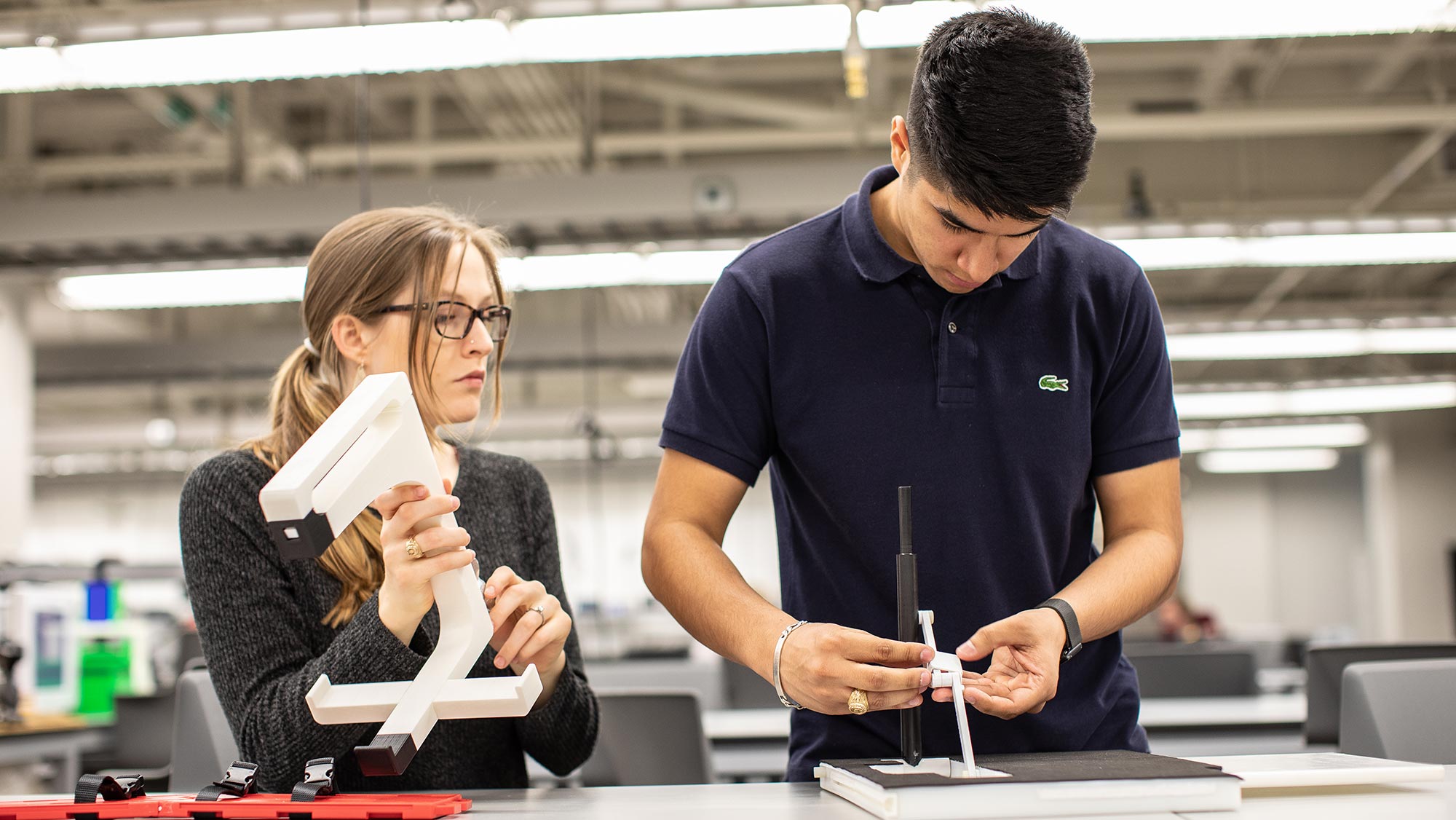
What is Mechanical Engineering?
Mechanical Engineering is among our oldest and most versatile disciplines. From designing advanced systems and materials to propelling energy, automation, and robotics forward, Aggie engineers collaborate across disciplines to turn ideas into impact.
How Mechanical Engineers Shape Our World
As a mechanical engineer, you will help shape the systems and technologies that power our world. From designing machines, devices, and advanced control systems to driving innovations in energy generation, conversion, and utilization, your work can touch every corner of modern life.
At Texas A&M, you’ll learn to analyze and create solutions for mechanical, thermal, and fluid systems. You’ll build expertise in materials design, manufacturing processes, robotics, and electromechanical systems — advancing industries and improving lives along the way.
As a graduate of our program, you’ll be among the most versatile engineers in the field, prepared to lead in industry, government, consulting, and research. With the strength of the Aggie Network and a tradition of innovation behind you, you’ll be ready to meet today’s challenges and shape tomorrow’s opportunities.
Mechanical Engineering at Work
As a mechanical engineer, you’ll find yourself everywhere innovation happens. From designing next-generation technologies to leading specialized fields, you’ll bring creativity and problem-solving skills to nearly every industry.
At Texas A&M, you’ll gain the expertise to contribute in areas such as design, construction, advanced controls, materials development, thermal and fluid systems, solid mechanics, manufacturing, plant operations, research and development, and technical sales. Your versatility will make you a vital part of industries ranging from energy and aerospace to health care, robotics, and beyond.
Why study Mechanical Engineering at Texas A&M?
At Texas A&M, mechanical engineering is more than a curriculum — it’s your pathway to innovation and impact. You’ll build a strong foundation through rigorous fundamentals, while hands-on labs, design projects, and research experiences prepare you to solve complex challenges and lead with purpose.
With electives ranging from energy and robotics to automotive engineering and advanced manufacturing, you can tailor your studies to fit your passions and career goals. Opportunities like cooperative education, internships, study abroad, and faculty-led research will extend your learning beyond the classroom.
Your journey will culminate in a senior capstone design project sponsored by industry partners, where you’ll apply your knowledge to real-world problems. This experience will give you the confidence, skills, and vision to shape a better future.